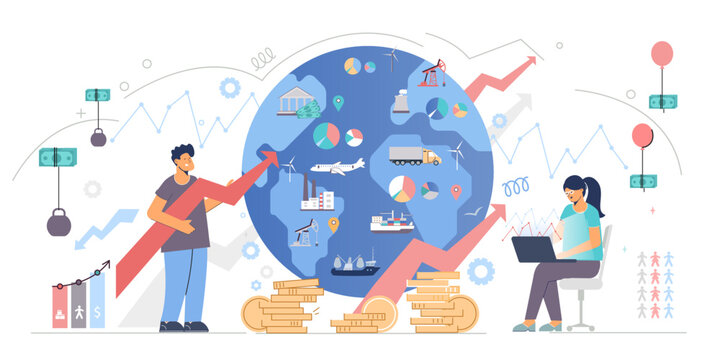Microeconomics is an economics that specifically studies the behavior of consumers and companies by determining market prices and the quantity of input factors, goods and services that are traded. It will also directly affect the decision-making in the supply and demand of goods or services.
From this definition, it is intended for a company to analyze the market and how to set up a mechanism to form the price of products and services. Apart from that purpose, microeconomics also has several components in business.
3 essential components of Microeconomics in business

With 3 main components are usually applied in business including:
- Interaction in the market of goods
The economy consists of various markets, one of which is the goods market. Sellers and buyers usually make a price agreement in the interaction of the goods market.
Microeconomics is quite an important role to explore the interactions that occur in the market which can further influence decision-making policies related to product prices in the company.
- Habits of sellers and buyers
The habits of sellers and buyers are an important component in microeconomics, this is related to the emergence of the behavior of producers and consumers in the market with different objectives.
Therefore, from this component, it is necessary to discuss how a consumer must meet his needs with the income he has, while the manufacturer can strive to get maximum profits.
- Interaction in the market
The interaction of consumers and producers involving production factors such as natural resources, human resources, capital and entrepreneurship.
The role of Microeconomics in business
These components are quite important roles and some of these components can be applied in business. In addition to the components, microeconomics also has several roles in business such as:
- Creating Policies
One of the roles of microeconomics is to be a foundation for making corporate policies in resource management such as managing prices and wages. The existence of policies in the company can also make the company a strategic and innovative company.
- Drawing Up Predictions
As mentioned above, of the several components mentioned, one of them is as a source of interaction information in the market. So with microeconomics, the company can strategize and predict the future path of the company.
The meaning of prediction here is the possibility that will happen in the market, one example of changes related to product trends.
- Understanding Consumer Behavior
Indirectly, this role will be very visible if the company can understand the wants and needs of consumers. Therefore, of course this will affect the ability of products or services that can survive in the market.
- Goods Turnover
Microeconomics can be a tool to determine product turnover. If you want to survive in the market, then the company can oversee the products marketed. It aims to avoid fraud that can occur.
- Increase Company Productivity
Productivity of a company will be achieved if there is encouragement from various aspects such as quality human resources, more secure products and others. So that with increasing productivity, it will certainly be compared to increasing company profits more optimally.
From the discussion of the components and roles that microeconomics has for business, it proves that microeconomics has many benefits for the economy.



